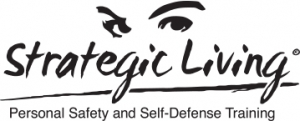Today is November 4, 2021, which means October is done for this year. BUT, even though October, a/k/a Domestic Violence Awareness Month, is over, domestic violence has not yet ended. So I’m offering one more segment on DV. About supporting survivors.
First, understand a bit about abusive dynamics. The abuser is seeking power and control over their partner. Part of that process can be by socially isolating their target, the survivor. That can happen by physically moving away from family and friends, or by socially alienating family and friends when together, or by telling the target that others are not good or healthy for them. Or by even outright banning contact, and engaging in abusive behavior if that dictum is violated.
Sometimes the survivor does not recognize the abusive dynamic, because they are emotionally invested in making the relationship work. Or they recognize the abuse but do care about and love their partner, and view the abusive incidents either as deserved or one-off acting out due to stress. Or they recognize the abuse and want out, but the abuser won’t let go without a fight.
When I was working on the DV crisis line, a common call was from family or friends of those in abusive relationships. They wanted to help support survivors, but did not know how. What to say, what to do, what to offer, how long it would take. On the flip side, survivors often struggle to find really useful support.
Second, understand this is a long-term process. A person doesn’t get into an abusive relationship overnight, it takes time and cultivation. They may try to leave several times, but something goes wrong and they return. That can be frustrating to others around.
As I mentioned, the abuser is trying to control the survivor. As family and friends who care, we don’t want to fall into that same pattern by telling the survivor what to do: survivors too often hear that they need to leave now, that this has gone on too long, to just get out of the relationship, not just whine about it, and feel free to contact me when you’re serious about leaving.
Or family and friends sometimes ask what the survivor did to antagonize the abuser. Maybe you’re not good enough, you’re too selfish, you’re not being a good partner, you vowed til death do us part, “we” don’t just split up families.
These are not the most supportive options, although those who say these sorts of things are sure they are coming from a caring place.
Instead of “what did you do to get into this mess,” you could say “I’m concerned about your safety; nobody should treat you like that.”
Instead of “I’ve told you many times I don’t like them; I hope you learned something from this,” you could say “I’m glad you’re telling me, I’ve been worried about you, it must be upsetting to have someone you care about hurt you.”
Instead of “I did warn you about them, I wish you listened to me back then. I can’t stand around and watch this. When you’re ready to do something, let me know” you could say “you don’t deserve this, I really do want to help and I’ll just listen if that helps. I’m here for you.”
And listen. The abuser already gives lots of “advice.” What does the survivor want? How can you help make that happen? Sometimes they are seeking concrete advice. Sometimes they want to be heard and believed, and that alone can be validating and powerful. Supporting survivors should be on their terms.
These common statements and alternatives are based in the training I got from DAWN’s DV Institute. DAWN provides support for persons experiencing domestic/dating/intimate partner violence, primarily in south King County.
Finally, take care of yourself. Really listening to and supporting survivors is wonderful, and you’ll probably hear stuff you wish you hadn’t. Find your own supportive friends and family. Recognize you could be in this for a while; as I mentioned earlier, this is a long-term process. Figure out how to manage your own frustration without taking it out on the survivor you are trying so hard to support.
is wonderful, and you’ll probably hear stuff you wish you hadn’t. Find your own supportive friends and family. Recognize you could be in this for a while; as I mentioned earlier, this is a long-term process. Figure out how to manage your own frustration without taking it out on the survivor you are trying so hard to support.
We are approaching the end of 2021. Not a whole lot of new classes for the rest of this year, but there still are openings for both Teen Girls and Women. Stay tuned for Winter offerings — although two six-week courses are open for registration.
Stay safe, live life.
